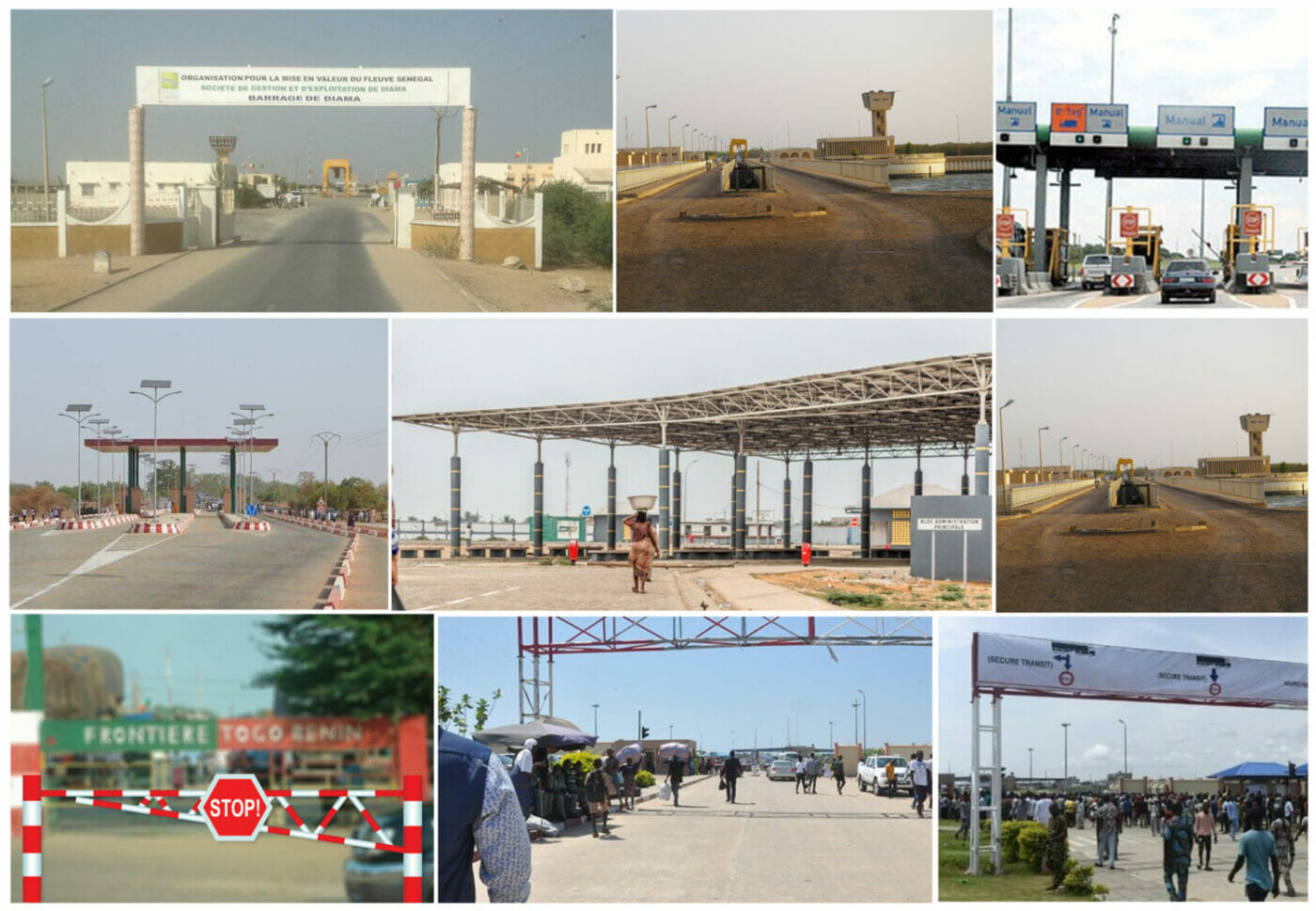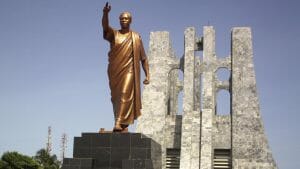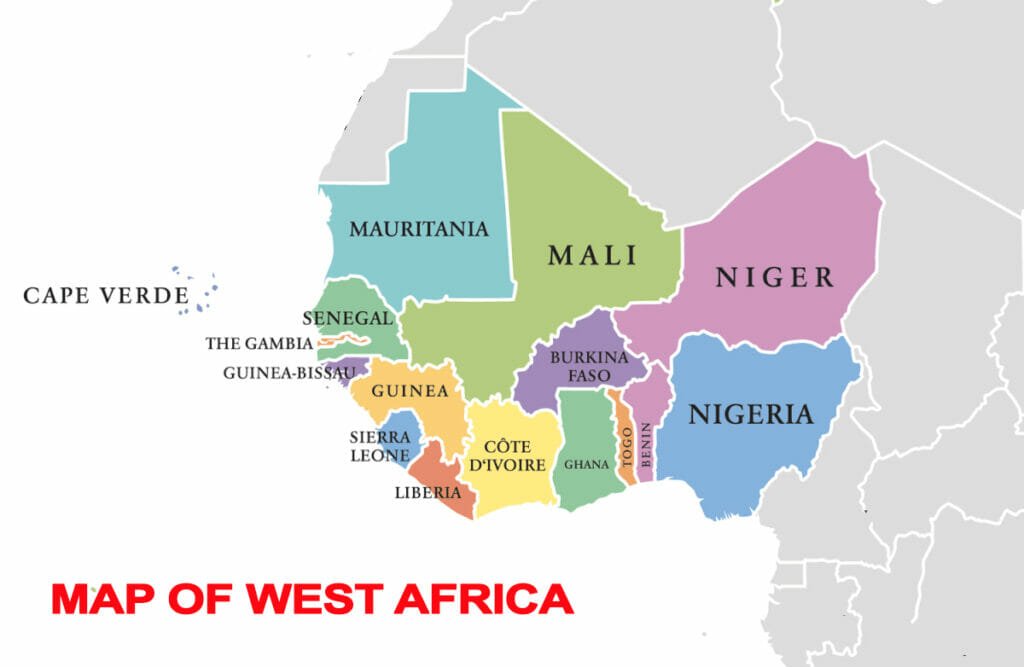West Africa must unite: a new regional Pan-Africanist vision

BY PROFESSOR EDGARD GNANSOUNOU
Professor at the Ecole Polytechnique Fédérale de Lausanne (EPFL), Suisse (The Swiss Federal Institute of Technology in Lausanne, Switzerland)
Despite and because of their endowment in raw materials, most African regions are maintained in an unbalanced international trade that limits their ability to end deprivation and poverty. The economic exchange model has not fundamentally changed since the long centuries of slavery followed by colonization. In the earliest twentieth century, American personalities of African descent, particularly Dr. W.E.B Du Bois, played a crucial role in raising awareness about the domination conditions of Africans and the need for emancipation. The Fifth Pan-African Conference held in Manchester in 1945 was a historic step on the road of Pan-Africanism. Later on, Kwame Nkrumah played a pivotal role in the theory and practical deployment of Pan-Africanism as president of the first independent Sub-Saharan country, Ghana. Influenced by his U.S. education, Nkrumah was convinced that Africa should form a continental federal government to emerge as a core economic player worldwide. His book entitled “Africa must unite”, published in 1963, was a heartfelt advocacy of the need for African countries to form a federation to achieve economic industrialization. Unfortunately, Nkrumah’s authoritarian rule caused the abrupt end of his regime, and he took with him the brilliant idea of federalism. Several federation experiences by other African countries failed as well.

In Sub-Saharan Africa, Nigeria is the only federal state and, not surprisingly, Africa’s leading economic power. Oil rent plays a vital role in the financial strength of Nigeria. The country derives more than 90% of its export revenues from its oil exports, which constitutes an economic vulnerability. The government manages the risk of low oil prices by devaluating the national currency, the naira, when the international price of oil falls. Nigeria strives to diversify its economy by promoting industrialization. The country can count on its vast internal market of 214 million inhabitants in 2022.
Nigeria as a regional driving economic force
It would have been expected of Africa’s leading economic power to drive the regional well-being. That has not been the case. Nigeria is struggling with the terrorism of Boko haram, the North-South divide, and the claim of more autonomy by ethnic groups, powerful Nigeria shows weaknesses that threaten the other fourteen counties of the Economic Community of West African States (ECOWAS). But Nigeria represents 52% of the population of West Africa and more than 70% of its annual Gross Domestic Product (GDP). This asymmetry has not allowed real economic integration. The governance of ECOWAS cannot work equitably with a formal share of the power that gives the same rights to the 38-federalized-Nigerian-states on the one hand, and to each of the fourteen smaller independent states, on the other hand.

Despite its weaknesses, ECOWAS is considered the most effective regional integration organization in Africa because of its infrastructure projects such as roads, regional electrical transmission, and gas pipeline. However, several threats are darkening this picture. The Sahel countries such as Mali, Burkina Faso, and Niger are suffering from the terrorism of al-Qaida in the Islamic Maghreb (AQIM), Islamic State of Libya, and Islamic State West Africa (ISWA). This violence is progressing toward the countries of the Guinean Gulf, such as Benin Republic, Togo, Ghana, and Cote d’Ivoire. Finally, France’s influence on its former eight West African colonies complicates the situation. Recently, the growing influence of Russia and China in these countries, coupled with the military coups in Mali, Guinea, and Burkina Faso made it urgent for the West African intellectual elite to call for more effective governance of our region. One idea to fight against the existing fragmentation and progressing territory dismantling risk would be to integrate the fourteen other countries into Nigeria. However, this seems to be unrealistic since Nigeria is a centralized federation and already under centrifuge pressure of autonomy claims and ethnic oppositions. The consolidation of the Nigerian federation is a prerequisite for West Africa’s political revitalization.
A new regional Pan-Africanism
Pan-Africanism, as its proponents thought it after the Second World War and in the sixties, cannot renew due to hot geopolitical issues and new contexts. In the best-case scenario, it can become a long-term perspective and, in the worst-case scenario, an idealist dream. Indeed, in North Africa, Libya is striving to be reborn. Algeria and Morocco are slow to reconcile due to the West Sahara dispute. Morocco and Tunisia turn toward the European Union more than in the direction of Sub-Saharan Africa, despite their interest in the ECOWAS. The Horn of Africa, Central, Eastern, and Southern Africa face the challenge of internal conflicts and the need to consolidate the integrity of their territories.
This regional configuration is not the only way of framing Africa’s future since a new all-Africa-initiative is going on. The African Continental Free Trade Area (AfCFTA) that started on January 1st, 2021 promised to set up a common market in the whole of Africa. However, it would be misleading to expect that free trade will outdate the need for regional federalization. If regional free trade proves to fail after several decades, how will a continental one succeed with the same countries? Another argument that keeps federalization alive is that free trade cannot solve all our problems. Free trade is not the solution to terrorism. It is not for the collective management of human establishments that are more and more conflictual due to climate change and its effect on the relations between nomadic and sedentary peoples, nor for the quest of balanced distribution between local production, continental, and global markets. The latter grew more acute due to the COVID pandemic and called for relocating part of the production at regional and local levels. A regional Pan-Africanism can emerge from the rethinking of regional integration.
We envisage it as a regional process of decentralized federalization that takes into account the characteristics of each African region and state and finds the best trade-off between the existing nationalism and the need to be together to better serve the interests of each party. It is worth noting that actual nationalism is overrated. Most African countries result from the boundaries set at the Berlin Conference of 1885, where European states agreed on the sharing of the future African colonial states. What legitimacy can be granted to a nationalism built on a colonial spatial setting? Are we condemned to inscribe our future into arbitrary decisions made against our interests at the end of the nineteenth century? How do we envisage our responsibility towards the future generations of Africans? Another pretext raised by some “wise” people is the “francophone versus anglophone dichotomy.” It is remarkable that this argument generally comes from part of the elite in France’s former colonies. Everything happens as if their mentality was branded with a hot iron. We envisage the new regional Pan-Africanism as the framework that can propose innovative answers to these altered mindset questions, in addition to be a backbone for industrialization.
Learning lessons from the Pan-Africanism of the sixties and the federalism of Nigeria, the new regional Pan-Africanism must be flexible by fully recognizing the sovereignty of the federalized states. Only the areas that serve each state will be shared between the federalized countries. These shall include the economic space, which means absolute freedom of persons and goods circulation, no tariff between the federalized states, the freedom of settlement, a common defense, currency and diplomacy, and a federal justice. State governments shall continue playing a significant role under the federal framework law of best governance and democracy for all. Particularly, each state will retain the sovereignty over its natural resources. This new vision of Pan-Africanism, to be realized, should be taught, shared, discussed and disseminated in Africa and in the Diaspora.
The case of West Africa
 The new regional Pan-Africanism in West Africa will be implemented in three phases. First, the federalization of the states of West Africa without Nigeria; we’ll call this new entity the Sahelo-Guinean Federation (SGF) that will gather fourteen countries of the Sahel and Guinean Gulf. Secondly, the SGF+Nigeria (a 38-state centralized federation) will work as a confederation that will replace the ECOWAS. It will be named Songhai, in reference to the Songhai empire—one of the largest states in African history which dominated the Western Sahel in the 15th and 16th centuries. Thirdly, Nigeria will consolidate its federation by decentralizing the governance while keeping its national integrity. The country will diversify its economy by using the oil revenues as fast as possible to boost its industrialization; SGF will impulse its industrialization based on the internal market, the privileged exchanges with Nigeria, and in an openness with the rest of the world.
The new regional Pan-Africanism in West Africa will be implemented in three phases. First, the federalization of the states of West Africa without Nigeria; we’ll call this new entity the Sahelo-Guinean Federation (SGF) that will gather fourteen countries of the Sahel and Guinean Gulf. Secondly, the SGF+Nigeria (a 38-state centralized federation) will work as a confederation that will replace the ECOWAS. It will be named Songhai, in reference to the Songhai empire—one of the largest states in African history which dominated the Western Sahel in the 15th and 16th centuries. Thirdly, Nigeria will consolidate its federation by decentralizing the governance while keeping its national integrity. The country will diversify its economy by using the oil revenues as fast as possible to boost its industrialization; SGF will impulse its industrialization based on the internal market, the privileged exchanges with Nigeria, and in an openness with the rest of the world.
We are in the process of creating an international association independent from any political party to promote this vision. Our initiative, The Movement of Sahelo-Guinean Federalists (MSGF), will work with people who want to think and act peacefully to implement the new regional Pan-Africanist vision in West Africa. The first sections of the MSGF are being founded in Benin and in the Diaspora.
______________



